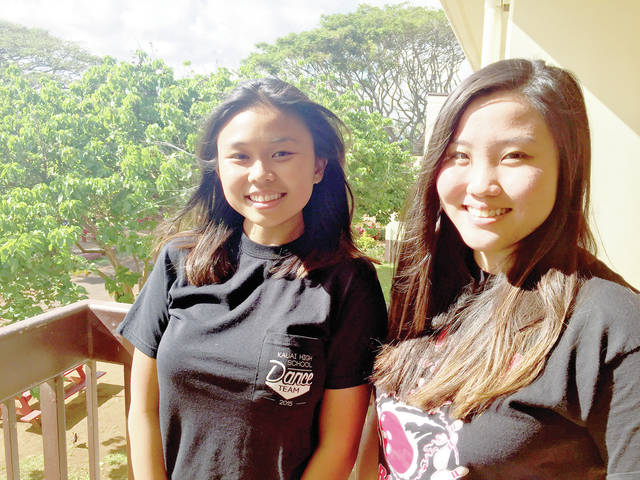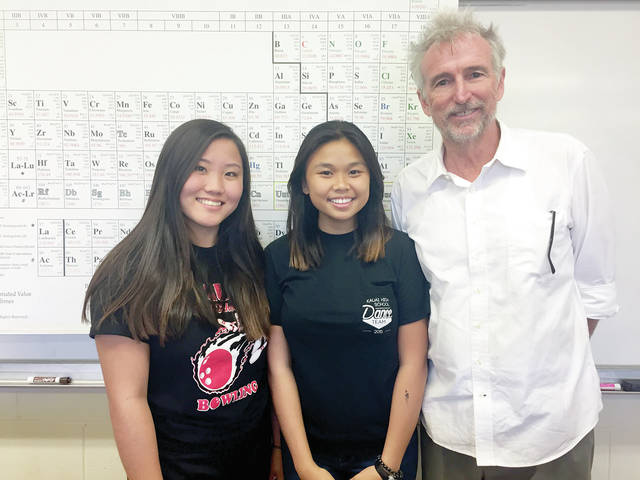Two Kauai youth are changing the way we look at renewable and sustainable fuels.
Kauai High School juniors, Jenna Takata and Charlene Tan, spent the last three months researching energy-efficient and cost-effective methods of producing algae for fuel.
“If we were to be cut off from fuel sources elsewhere, then we could potentially have our own fuel source right here on this island that we could actually grow and produce,” Tan said.
The team’s research was the basis of their science fair project that earned first place last month at the Kauai Regional Science and Engineering Fair sponsored by the Hawaii Academy of Science. The female duo’s project will advance them to a statewide competition in Honolulu March 28 to 30 and then to the world’s largest pre-college science competition — Intel’s International Science and Engineering Fair in Pittsburgh, Pennsylvania during May.
“The most difficult part about the production of this algae fuel is how expensive it is,” Takata said. “It does outperform bio-ethanol; it’s a much more potent energy source.”
“The way we can make it a viable alternative to petroleum, those non-renewable fuel sources, is to reduce the cost,” Takata said. “By doing efficiency tests such as ours, we could contribute to the production of this algae-based fuel.”
During their research, the two found limited studies on numerous phases of extraction of the same bio mass. Their project “Determining the role of n-Hexane in multiple phases of Nannochloropsis sp. and Nitzcchia sp.” demonstrated that the organic solvent was effective at extracting various amounts of algae multiple times.
“A lot of credit goes to Rodney Corpuz with Global Algae Innovations here on Kauai,” said science teacher, Kevin Johnson, who has been teaching at Kauai High School for 15 years. “They for years have been so instrumental in offering the mentorship and the scientific laboratory and opportunity for these students to test themselves against these really top-level questions like this.”
Working in the high-tech lab was an eye-opening experience for the girls, who are now considering possible careers in STEM-related fields.
“It taught me to be involved in the scientific process more than anything I’ve ever learned in the classroom,” Tan said. “It was gratifying to learn new laboratory procedures and how to properly handle the n-Hexane, while actually working in a sterile environment.”
She thinks everyone should take on opportunities to investigate and pursue interests in the sciences. “Science is such a broad concept and is open to a variety of fields. In our project alone, we were able to incorporate the mathematical calculations, chemistry, and our knowledge of biology, to produce a fuel that is capable of being an energy source.”
The friends wouldn’t have opened themselves up to this knowledge if it weren’t for the science fair and feel fortunate to have the opportunity to be involved.
“In the end, we grew stronger and more confident in our abilities,” Tan said. “Seeing how much our project has helped people gain insight on algae-based biofuel was worth the hours we put into our research, calculations, and preparations.”
“Our entire island is run on a fuel source that’s thousands of miles away across the ocean,” Takata added. “If were able to be self sufficient and actually grow our own fuel here, it’s not only better for the planet, but it’s our only backup plan really.”
Takata says it was a good lesson in perseverance by organizing daily data and not knowing the outcome.
“It was just the most rewarding feeling to have it actually come together at the end and then being able to work with someone you really enjoy being around,” she added.



